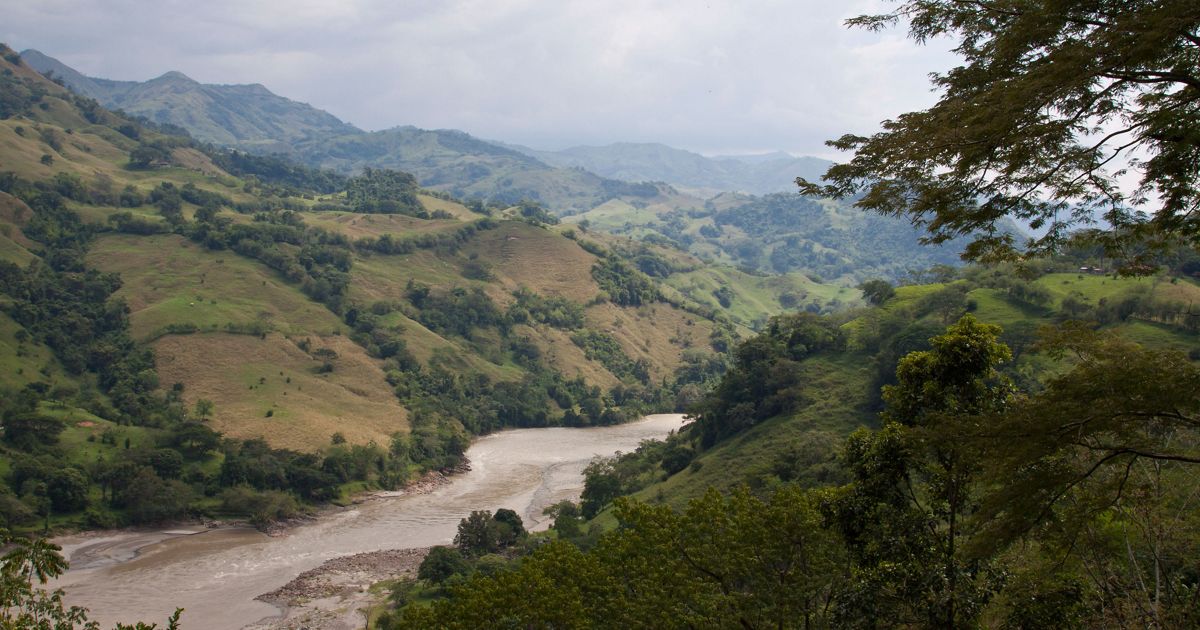Cauca River

Nestled amidst the breathtaking landscapes of Colombia, the Cauca River flows as a vital artery, not only nourishing the land but also enriching the cultural heritage of the regions it traverses. Situated between the Cordillera Occidental and Central Cordilleras, this majestic river holds profound significance for the people of Colombia, serving as a source of inspiration, sustenance, and identity. In this in-depth exploration, we delve into the multifaceted reasons why the Cauca River is culturally important, uncovering its role in shaping traditions, fostering community, and preserving heritage.
Indigenous Connections:
For millennia, indigenous communities have inhabited the lands along the Cauca River, forging deep connections with its waters and surrounding ecosystems. The river has been woven into the fabric of their cultural identity, serving as a source of spiritual inspiration, sustenance, and livelihood. Indigenous traditions and ceremonies pay homage to the river’s life-giving powers, with rituals often performed to honor its bounty and seek protection from its wrath.
The Cauca River has also played a central role in indigenous cosmology, with myths and legends passed down through generations depicting the river as a sacred entity inhabited by ancestral spirits and mythical beings. These stories serve to reinforce the cultural importance of the river, instilling a sense of reverence and respect among indigenous communities for the natural world and its interconnectedness with human existence.
Historical Significance:
Throughout Colombia’s history, the Cauca River has been a witness to the rise and fall of civilizations, the clash of cultures, and the forging of new identities. From pre-Columbian indigenous societies to Spanish colonial rule and beyond, the river has served as a backdrop for significant historical events and cultural exchanges.
During the Spanish conquest of Colombia in the 16th century, the Cauca River became a strategic thoroughfare for European explorers and settlers, facilitating the spread of Spanish influence and the establishment of colonial settlements along its banks. The river’s fertile valleys and abundant resources attracted Spanish colonists, who sought to exploit its wealth for economic gain, leading to the displacement and marginalization of indigenous communities.
Despite the challenges posed by colonization, the Cauca River also became a site of resistance and resilience for indigenous peoples and Afro-Colombian communities, who fought to preserve their cultural traditions, languages, and land rights in the face of oppression. These struggles for autonomy and self-determination have left an indelible mark on the cultural landscape of the region, shaping the identities and aspirations of future generations.
Cultural Traditions and Practices:
The cultural importance of the Cauca River is further evidenced by the myriad traditions, practices, and customs that have emerged along its banks. From artisanal fishing and agriculture to music, dance, and storytelling, the river has inspired a rich tapestry of cultural expressions that reflect the diversity and creativity of Colombia’s people.
One such tradition is the annual Fiesta de San Juan, a vibrant celebration held in communities throughout the Cauca River basin to honor the river’s patron saint and celebrate the arrival of the summer solstice. The fiesta features music, dance, food, and rituals performed to invoke blessings for the coming year and ensure the river’s continued abundance.
In addition to religious festivals, the Cauca River is also celebrated through artistic expressions such as literature, poetry, and visual arts, with numerous artists and writers drawing inspiration from its natural beauty and cultural significance. Through their works, they seek to preserve the memory of the river and its importance to Colombian identity, ensuring that its legacy endures for future generations.
Environmental Stewardship:
Beyond its cultural significance, the Cauca River plays a crucial role in sustaining the ecological health and biodiversity of the regions it traverses. Its waters support a diverse array of flora and fauna, including endemic species and migratory birds that rely on the river for habitat and nourishment.
In recent years, there has been growing recognition of the importance of environmental stewardship and conservation along the Cauca River, with local communities, government agencies, and non-profit organizations working together to protect its waters and surrounding ecosystems. Efforts to preserve riparian habitats, reduce pollution, and promote sustainable land use practices are underway, aiming to ensure that future generations can continue to benefit from the cultural and ecological richness of the river.
Conclusion:
In conclusion, the Cauca River holds a special place in the hearts and minds of the Colombian people, serving as a symbol of resilience, cultural diversity, and natural beauty. From indigenous spirituality and historical significance to cultural traditions and environmental stewardship, the river’s importance transcends mere geography, shaping the identities and aspirations of those who call its banks home. As we continue to navigate the complexities of the modern world, it is essential that we recognize and honor the cultural significance of the Cauca, preserving its legacy for generations to come.
Know More about the Cauca River.
What are The Religious Places of the Cauca River?
When Did The Cauca River Basin Become a Focus?
Where is The Cauca River Located?
Who Were The Key Historical Figures and Civilizations of The Cauca River?
How to Reach Cauca River?




